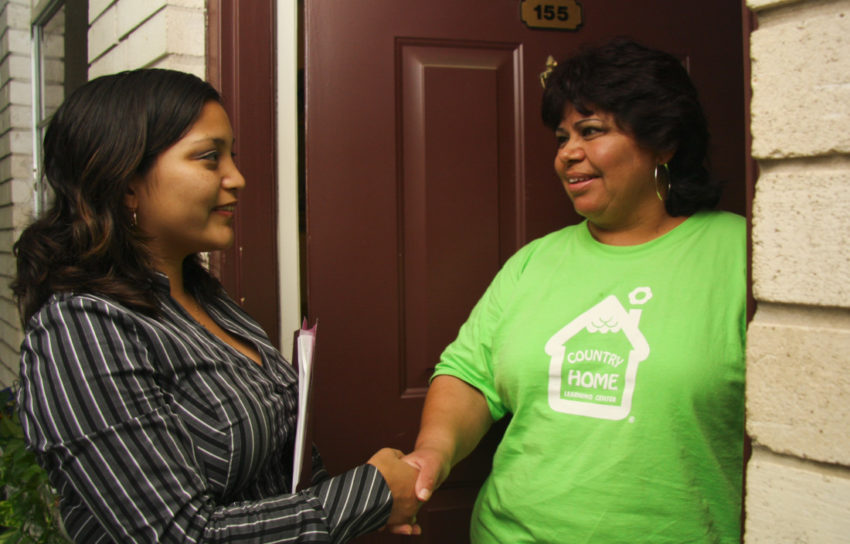
Share On Social!
For many years, health programs have used volunteer community health workers called promotoras to deliver culturally sensitive health and wellness information to Latinos.
But some Latinos may misunderstand what a promotora is all about.
 In fact, Mexican-born rural Latinas in rural Illinois communities were biased against promotoras because they perceived them as more like “unwanted salespeople” or “promoters” engaged in for-profit enterprises than legitimate volunteer health liaisons, according to a new study, columnist Esther J. Cepeda reports.
In fact, Mexican-born rural Latinas in rural Illinois communities were biased against promotoras because they perceived them as more like “unwanted salespeople” or “promoters” engaged in for-profit enterprises than legitimate volunteer health liaisons, according to a new study, columnist Esther J. Cepeda reports.
The study, led by researchers including former Salud America! grantee Dr. Angela Wiley at the University of Illinois at Urbana-Champaign, found that Latinas’ negative perceptions of promotoras kept them from engaging in the researchers’ Abriendo Caminos-Promotora program that educates Latinos families about healthy lifestyles.
Even the program’s promotoras had to spend too much time explaining the truth about their health work, and preferred the title educadora (educator).
“Our findings were unexpected given the frequency with which promotoras are being used in Latino health studies,” said Wiley in a blog for the University of Illinois News Bureau. “Based upon the responses we obtained in the focus groups, we now know that successful implementation of the Abriendo Caminos-Promotora project will require us to work with these communities to broaden their perception of the term or use terminology that they report more clearly denotes a volunteer community health worker role.”
The researchers say the use of community health workers remains very important.
They wrote that their findings do call attention to the “need to engage Latino communities in the development of health programs directed toward them.”
“The fact that many of the Latinas in our study didn’t understand the term promotora in the same way the researchers did is just an example of how important it is to work with a community throughout the whole process of research and understand its culture and context,” said study leader Andiara Schwingel in a blog for the University of Illinois News Bureau. “Only by working with community members did we discover this semantic gap. This information is particularly important for recruiting and retaining promotoras in community health programs.”
In her column, Cepeda seemed to agree.
She wrote that the study is an important reminder that “cultural competency” is a dynamic thing, a state of understanding than can evolve and require new perspectives.
“And, of course, yet another example of the need to see our minority populations as groups of individuals with varied needs and circumstances, instead of as large, homogenous categories,” Cepeda wrote.
Explore More:
Maternal & Child HealthBy The Numbers
20.7
percent
of Latino kids have obesity (compared to 11.7% of white kids)



